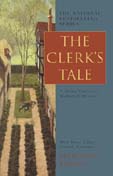Less than two years after radiation therapy had killed the cancer in my sternum, the idiot stuff was back, now in my right ribs and lung. Neither of those is fun, especially when a hole is put in your back to drain the cancerous fluid out of your lung, and when you see the x-ray showing how almost an entire rib has been dissolved away by the cancer. Since something hard hitting and quick was obviously needed, I accepted the need for chemotherapy.
Let me say here there are great differences between clinics. Because of moving and insurance changes, I’ve been to five clinics and a number of different oncologists over these twenty years, and I no longer have any hesitation over changing doctors and/or clinic if they treat me (1) as too ignorant to know when something is going wrong with my body and their treatment, and (2) as a dead woman walking. You can recognize the former when you feel your concerns dismissed or treated lightly. The second is more subtle but too often there. The best oncologists truly care how you’re doing. The lesser kind merely go through a pre-set checklist of treatments, and when that’s finished and you’re not in remission… well, there’s more where you came from.
People with cancer are told to stay calm and keep a positive attitude, but I have found that occasional, well-justified anger is a great help in focusing my mind on what I need to do.
These days you stand a good chance of finding official cancer-literature that admits to the “cognitive impairment” (heaven forfend it be outright called “brain damage”) caused by chemotherapy in the majority of recipients. But twelve years ago, when I tried to make my then-oncologist understand that something was wrong with my mind – that it desperately wasn’t working right – the most I could get out of him was a vague, dismissive, “We hear that a lot,” and the shrugging suggestion that it was depression.
Now, I know depression. I’ve rung enough changes on depression to know it when it happens to me. What I was experiencing was something else altogether, and I was left to suffer through it on my own. A brief article about “chemo-fuzzies” in a magazine for cancer sufferers was the only, chance-found help I had. It was not until a few years later that report came out from a British study confirming that, yes, chemotherapy can destroy the myelin sheath on the nerves in the brain. In fact, it seems four out of five people on chemotherapy complain of mind-fuzzies to greater or lesser degree. “We hear that a lot” indeed!
Too bad most of the oncologists I have encountered don’t seem to care. Too bad, too, that it was still more years before those cancer booklets that proliferate in doctors’ offices began to tentatively admit to the problem. And, yes, I’m bitter, both for myself and for everyone else who was left to suffer without understanding why — to think that they were going mad while their doctors dismissed them.
My own chemo-fuzzies were definitely at greater end of the scale, making thinking a constant uphill battle for coherence, but I had to struggle on without help, unable to make clear to family or friends what was happening to me, barely able to cope with day-to-day matters, and all too often reduced to desperate tears by the overwhelming effort to do such familiar things as write checks to pay monthly bills or fix food to feed myself.
There were also the several days shortly after each treatment when I could do nothing but lie on my bed while chemo-agony coursed along my bones. I remember how, during one of these times, I would wait until the pain paused, freeing me to slip off the bed to sit on the floor and work at correcting the galley proofs for The Squire’s Tale for a few minutes until the next wave of pain hit, sending me crawling back onto the bed to see it through.
The one thing to the good in this time came from a friend who treated me with reiki and made me an “old wive’s” tea of ginger, marsh mallow, peppermint, and horehound that ended my nausea without any prescription drug, and introduced me to colored light therapy. I had had such good luck with alternative medicines before then that I was willing to try other things, and certainly since then I’ve had some dramatic effects from the light therapy and at least the ease of lying quietly under it when ease was often hard to come by.
Yet all through that dreadful time, morning by morning I got up, made a pot of tea, set the computer going, and wrote for as long as I could while the brain was at its best, until it would close down like a door shutting in my face and I was left to grope onward through the day.
The disconcerting thing is that, reading the books I wrote while my brain groped toward healing, there’s no sign of the struggle going on. I’ve found that likewise true when I’ve worked on a story while suffering from flu or a dire cold or family grief – the writing goes on and no one can tell how ill I was while I wrote it. I’ve heard the same from other authors but have, as yet, been able to draw no profound conclusions, except perhaps that we all are quite mad.
In a creative rather than pathological way of course.
Still, eventually I finished with the chemotherapy and was in remission. My hair regrew into a curly mop that I hadn’t had before (but which, alas, went away with my next haircut), and bit by bit over the next few years thinking became less of a desperate struggle for coherence. I began work on The Bastard’s Tale.
Round Three was over. I yet lived.
But the cancer was not done with me yet.
– Margaret


















